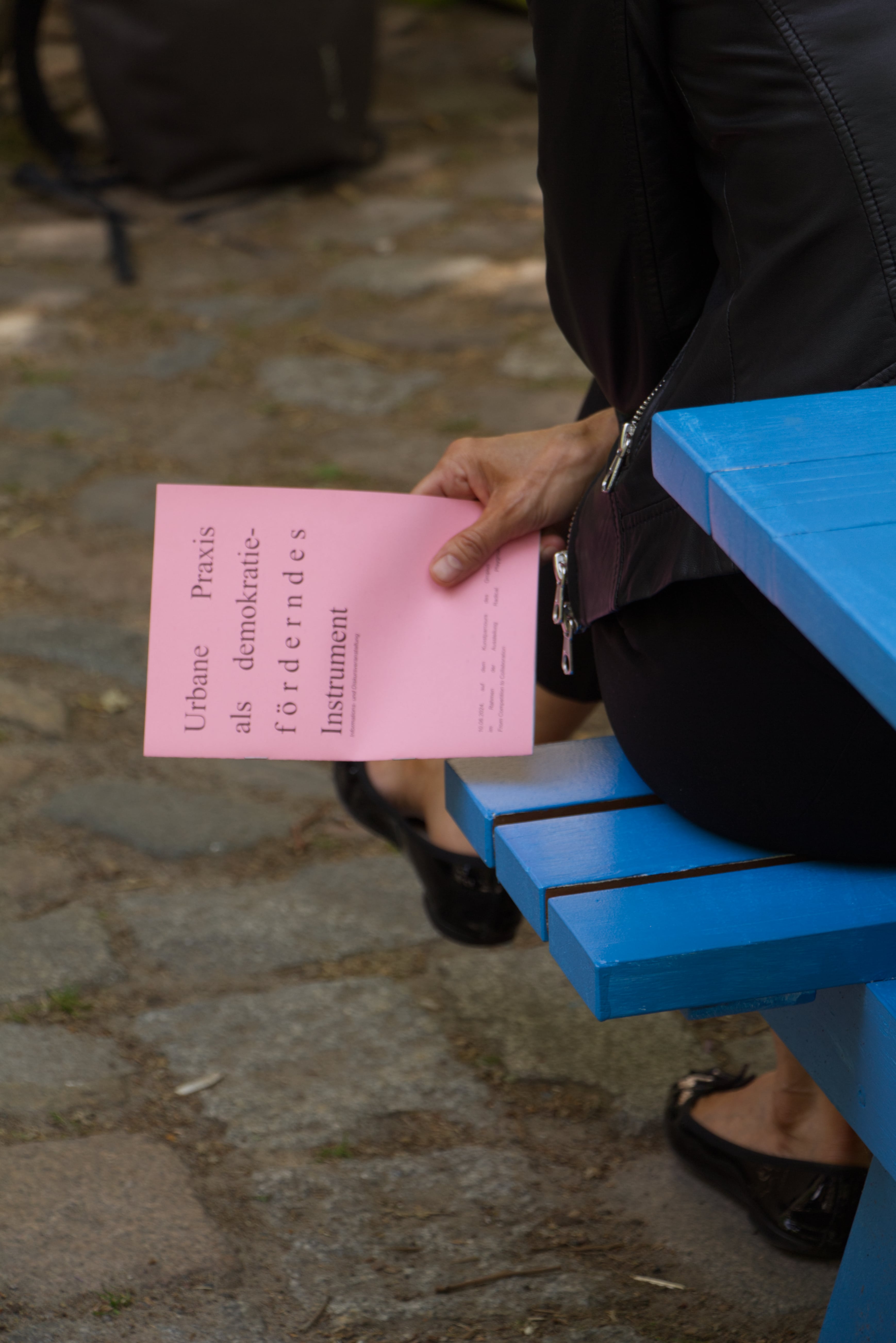Urban practice as an instrument for promoting democracy
Urban practice as an instrument for promoting democracy: event for the election campaign Sunday at the Radical Playgrounds art trail, Gropius Bau
Press release
Berlin, 10. June 2024
In times of an increasing shift to the right, only encounters, exchanges and the formation of alliances can be effective responses to the threat to democratic principles from the right. The public space and its design play a decisive role here, as they play a key role in determining whether and to what extent these encounters can take place.
Under the motto “Urban practice as an instrument for promoting democracy”, the event at the Radical Playgrounds art trail in the Gropius Bau was marked as the starting point for many alliances. Urbane Praxis e.V. invited representatives of the Berlin Senate Committee for City and Culture, including politicians, senators and department heads, to a curator tour and an expert discussion.
The event began with a warm welcome from the board of Urbane Praxis e.V. and offered the 30 or so participants an impressive tour of the art trail. Benjamin Förster-Baldenius from raumlabor Berlin guided the guests through the various installations of the Radical Playground and provided a deep insight into the role of art in public space.
This was followed by a lively expert discussion on the topic of “Voices from the field”. Representatives of the initiatives Poligonal, Schlesische27 and migrantas e.V. gave exciting insights into their projects and discussed the importance of urban practice for the promotion of a vibrant democracy. They emphasized how important it is to create public spaces that promote encounters and exchange in order to strengthen democratic values.
The following key points were emphasized in the discussion:
Climate justice and social participation: Urban practice makes it possible to combine ecological sustainability and social justice in urban planning. This promotes a fairer distribution of resources and opportunities for participation for all residents.
Local governance and co-design: The active involvement of citizens in the design of public spaces is essential for a functioning democracy. Urban practice creates platforms for local participation and promotes joint decision-making processes.
Limitations and challenges: Despite many successful initiatives, there are still significant hurdles, particularly in terms of financial and structural support for urban practice projects.
At the end of the event, Markus Bader and Sabine Kroner from Urbane Praxis e.V. discussed the key challenges and the need for support for the future of urban practice. Markus emphasized that urban practice is an indispensable component of a vibrant democracy. Sabine emphasized that practitioners in this field need greater financial and institutional support in order to continue their work sustainably and thus have greater added value for a democratically shaped urban environment.
The event not only offered in-depth insights, but also created a platform for exchange and networking between politics, culture and civil society. She emphasized the importance of urban practice as an instrument for promoting democratic values and showed ways in which this practice can be further strengthened and expanded in the coming years.
Further press inquiries: kommunikation@urbanepraxis.berlin
Foto Credits: Dana Schneider







